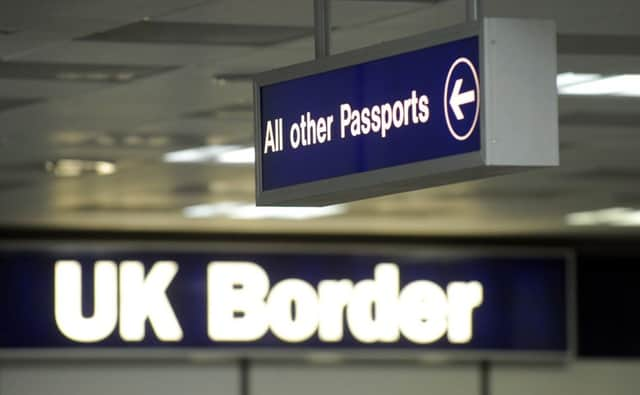Net migration to Britain falls to 3-year low in wake of Brexit


Figures from the Office for National Statistics (ONS) provide evidence that the uncertainty and economic jitters caused by Britain’s vote to quit the EU are having an impact on immigration.
The ONS said net migration - the difference between arrivals and departures - was 246,000 in the year to March 31 2017, a fall of 81,000 on a year earlier.
Advertisement
Hide AdAdvertisement
Hide AdMore than half the change was due to a decline of 51,000 in net migration from the EU.
A total of 122,000 EU citizens left Britain in the year to March, up 31,000 from the year before and the highest outflow in nearly a decade.
There was a particularly sharp rise in departures from citizens of the ‘EU 8’ - eastern European nations that joined the bloc in 2004.
Hundreds of thousands of Poles, Lithuanians and other eastern Europeans moved to Britain to work after 2004.
EU citizens have the right to live and work in any member state, and more than 3 million nationals of other EU countries live in Britain.
When Britain formally leaves the EU in March 2019, it will have the power to set restrictions on the movement of people from the EU, leaving many uncertain about their future rights.
Nicola White, head of international migration figures at the statistics office, said the figures ‘indicate that the EU referendum result may be influencing people’s decision to migrate into and out of the UK, particularly EU and EU 8 citizens.’
Advertisement
Hide AdAdvertisement
Hide Ad“It is too early to tell if this is an indication of a long-term trend,” she added.
A slowdown in the British economy could be making the country less attractive to migrants.
The statistics agency confirmed that the economy grew by a modest 0.3 per cent in the second quarter of 2017 from the previous three months - slower than any other Group of Seven economy.